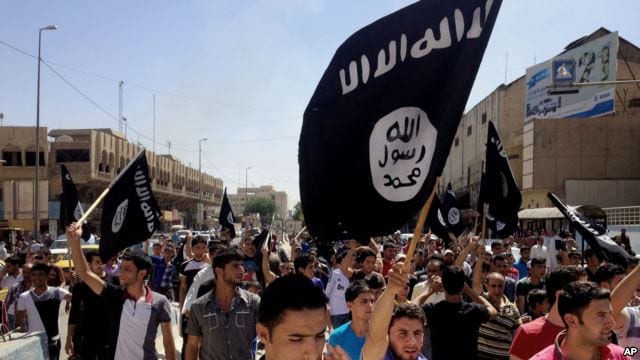
The Islamic State of Iraq and the Levant, commonly referred to as ISIL, ISIS or just IS, has certainly displayed not just surprising military prowess, but also significant communication skill as it has grown into a meaningful force in a vital region of the world. Buttressed by successes on the ground in Syria and Iraq, it has positioned itself in the Islamic world as a rival to al Qaeda and perhaps even its successor.
To the extent the Islamic State is engaged in an information war with al Qaeda, whose leadership threw ISIL out of the club for being too violent, it is definitely winning.
But a number of national security commentators have gone so far as to suggest the Islamic State is winning a propaganda war with the United States and the West. This is giving the Islamic State too much credit.
Exposure and influence are two different things.
The Islamic State is communicating effectively. It has shown remarkable sophistication in its media campaign. Its latest video, featuring British journalist John Cantlie in Shakespearian fashion asking his audience to “lend its ears” to hear the “other side” of the ISIL story is “diabolical” as one commentator suggested.
ISIL does seem to be growing in strength – at least for the moment. Its ranks include true believers in the formation of a Caliphate and others who see it as the lesser of evils compared to the governments of Iraq and Syria. It has shown an ability to attract a meaningful number of young men from Europe and the United States.
This is advertising. And as a relatively small but nonetheless a sadly compelling niche, the ISIL brand is advancing. Hopefully, as more and more people realize how unappealing the product really is, ISIL will steadily lose market share over time.
But in its outreach beyond the Muslim world, where the propaganda rubber hits the strategic road, the “information effect” of the media campaign is the opposite of what ISIL claims it wants.
In theory, the Islamic State message to the West is, “Leave us alone.” But the net effect of recent videos, particularly the gruesome murders of James Foley and Steven Sotloff, has been the formation of a coalition of countries dedicated to confronting and defeating the movement both militarily and politically.
Propaganda or strategic communication, its modern corollary, is supposed to create an information environment that enables a broader strategy to succeed. ISIL’s communications have actually crystallized international public opinion in opposition to its movement.
Sunni-led countries are prepared to take direct action in support of the Shia-led government in Baghdad, something that rarely occurred over the previous decade. Western countries that were previously reluctant to get re-involved in Iraq, including the United States, are now conducting air strikes against ISIL forces.
It is also possible the Islamic State is trying to draw America back into an active military conflict in the Middle East, trying to reinvigorate perceptions of a Western “war against Islam.” But here again, Washington, London and other capitals are committed to helping regional forces in Iraq and Syria against ISIL, ensuring this is appropriately framed as a struggle within Islam.
Strategic communications is not about the channel or the connection but the effect. If an information campaign actually makes it harder to win the war, it’s a strategic failure, not a success.

